Opinion
John Carpay: Claiming That Children Have Adult Rights Is a Perversion of the Canadian Charter
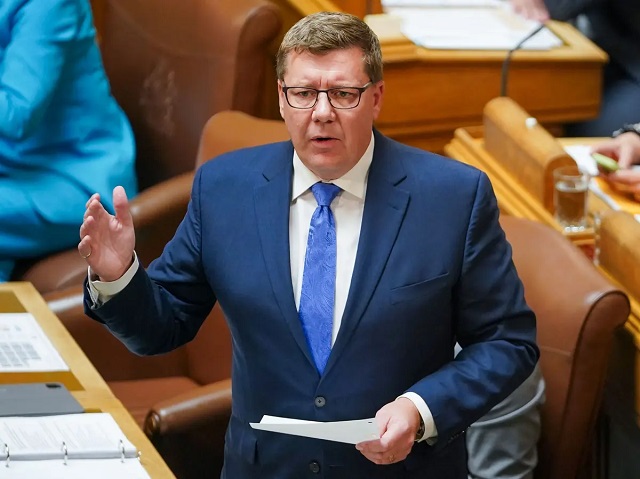
From the Justice Centre for Constitutional Freedoms
By John Carpay
In August of 2023, the UR Pride Centre for Sexuality and Gender Diversity filed a court application seeking to strike down Saskatchewan’s “Use of Preferred First Name and Pronouns by Students” policy. The policy requires parental consent when children under the age of 16 wish to use opposite-sex names and pronouns at school, referred to as “social transition.” This “social transition” can lead to children receiving puberty blockers, opposite-sex hormones, and eventually life-altering surgeries that will render them permanently infertile.
In September, UR Pride persuaded the Saskatchewan Court of King’s Bench to grant an interim injunction to suspend the policy pending a full court hearing, which would not take place until February of 2024. UR Pride claims that the parental consent policy will violate children’s charter rights and will irreparably harm them.
Saskatchewan Premier Scott Moe has introduced Bill 137, which uses Section 33 of the Canadian Charter of Rights and Freedoms, the notwithstanding clause, to keep his government’s parental rights policy in place, following the September court decision to suspend the policy temporarily, or any future court rulings to strike it down. Section 33 gives our federal Parliament and provincial legislatures the ability, through the passage of a law, to override a judge’s interpretation of certain charter rights for a renewable five-year term.
Opponents of Section 33 argue that politicians should not be allowed to violate our rights and freedoms. However, Section 33 is not all that different from Section 1 of the charter, which allows judges to override our charter rights and freedoms in much the same way that Section 33 allows politicians to do so. Section 1 empowers judges to approve and endorse the government’s violation of constitutional rights, if a judge in his or her personal opinion deems the violation to be reasonable and “demonstrably justified.”
In theory, Section 1 requires judges to force governments to justify any violation of charter rights and freedoms “demonstrably,” with persuasive evidence. According to the test laid down by the Supreme Court of Canada in R. v. Oakes (1986), governments must show that their violations of charter freedoms are actually doing more good than harm. Theory aside, judges have repeatedly used Section 1 to rubber stamp the government’s lockdowns and vaccine passports. This necessarily raises the question: who is more competent to understand, interpret, and protect our rights and freedoms—politicians or judges?
In striking down the Saskatchewan policy, the court seems to have assumed that all parents are somehow dangerous, abusive, and untrustworthy. The court believes that all parents should be kept in the dark when their own children embark on a dangerous and futile quest to become the opposite sex.
The court also assumes that the best way (or the only way) to help gender-confused children is to affirm any and all steps that a child may wish to take to adopt opposite-sex pronouns, names, clothing, etc.
This completely ignores the success achieved by Dr. Kenneth J. Zucker, who helped hundreds of children and teenagers to accept their biological sex while working for decades at Toronto’s Centre for Addiction and Mental Health as head of its Gender Identity Service. The vast majority of gender-confused children, when protected from political activists and ideologues and when supported by their parents, will be at peace with their sex by the time they reach the age of 18. Dr. Zucker saved these children from a lifetime of drugs and surgeries that would need to be administered in the futile quest to acquire a biological body of the opposite sex.
UR Pride claims that Saskatchewan’s new policy violates the rights of gender-diverse students under the Charter of Rights and Freedoms. But in fact, children do not enjoy privacy rights vis-à-vis their own parents. Because children are not adults, they legitimately have no right to drive, vote, get married, join the military, purchase liquor, get a tattoo, etc. Children are entitled to the love, support, guidance, and nurturing of their own parents. When parents are kept in the dark, they are severely hindered in providing these necessities. Claiming that children have adult rights is a perversion of the charter.
Placing great reliance on testimony from Dr. Travers, a Simon Fraser University sociology professor who uses “they/them” pronouns, the court appeared to embrace fear-mongering that children who are not “affirmed” in their “social transition” are at risk of suicide. This ignores a comprehensive Swedish study showing that “fully transitioned” transgender adults, after having had healthy body parts removed and new artificial ones created, have higher suicide rates than the general population.
The court considered irreparable harm to children only in relation to the very small number of children who might have truly abusive parents. Sadly, the court ignored the irreparable harm that is likely to result from keeping all parents in the dark, disregarding harm to children who are pressured, manipulated, and misinformed by political activists at school.
All in all, the court provided no compelling reason as to why or how it benefits children to keep all parents (not just the very small number of abusive ones) in the dark about their own children.
The Saskatchewan government should be applauded for using charter Section 33 to opt out of this court ruling.
Business
Carney should rethink ‘carbon capture’ climate cure

From the Fraser Institute
In case you missed it amid the din of Trump’s trade war, Prime Minister Carney is a big believer in “carbon capture and storage.” And his energy minister, Tim Hodgson, who said it’s “critical to build carbon capture systems for the oilsands,” wants the Smith government and oilsands companies to get behind a proposed project (which hasn’t been unable to raise sufficient private investment) in Cold Lake, Alberta.
The term “carbon capture and storage” (or CCS) essentially refers to technology that separates carbon dioxide (CO2) from emissions and either stores it or uses it for other products. Proponents claim that CCS could replace other more ham-handed climate regulations such as carbon taxes, emission caps, etc. The problem is, like many (or most) proposed climate panaceas, CCS is oversold. While it’s a real technology currently in use around the world (primarily to produce more oil and gas from depleting reservoirs), jurisdictions will likely be unable to affordably scale up CCS enough to capture and store enough greenhouse gas to meaningfully reduce the risks of predicted climate change.
Why? Because while you get energy out of converting methane (natural gas) to CO2 by burning it in a power plant to generate electricity, you have to put quite a lot of energy into the process if you want to capture, compress, transport and store the attendant CO2 emissions. Again, carbon capture can be profitable (on net) for use in producing more oil and gas from depleting reservoirs, and it has a long and respected role in oil and gas production, but it’s unclear that the technology has utility outside of private for-profit use.
And in fact, according to the International Institute for Sustainable Development (IISD), most CCS happening in Canada is less about storing carbon to avert climate change and more about stimulating oil production from existing operations. While there are “seven CCS projects currently operating in Canada, mostly in the oil and gas sector, capturing about 0.5% of national emissions,” CCS in oil and gas production does not address emissions from “downstream uses of those fuels” and will, perversely, lead to more CO2 emissions on net. The IISD also notes that CCS is expensive, costing up to C$200 per tonne for current projects. (For reference, today’s government-set minimum carbon market price to emit a tonne of CO2 emissions is C$95.) IISD concludes CCS is “energy intensive, slow to implement, and unproven at scale, making it a poor strategy for decarbonizing oil and gas production.”
Another article in Scientific American observes that industrial carbon capture projects are “too small to matter” and that “today’s largest carbon capture projects only remove a few seconds’ worth of our yearly greenhouse gas emissions” and that this is “costing thousands of dollars for every ton of CO2 removed.” And as a way to capture massive volumes of CO2 (from industrial emission streams of out the air) and sequestering it to forestall atmospheric warming (climate change), the prospects are not good. Perhaps this is why the article’s author characterizes CCS as a “figleaf” for the fossil fuel industry (and now, apparently, the Carney government) to pretend they are reducing GHG emissions.
Prime Minister Carney should sharpen his thinking on CCS. While real and profitable when used in oil and gas production, it’s unlikely to be useful in combatting climate change. Best to avoid yet another costly climate change “solution” that is overpromised, overpriced and has historically underperformed.
Energy
Is Carney ‘All Hat And No Cattle’?

From the National Citizens Coalition
By National Citizens Coalition President Peter Coleman
Mark Carney promised to lead Canada with bold vision and economic strength. But his latest stall tactics on removing red tape for Canadian oil and gas, his floundering in tariff negotiations despite lofty “elbows up” promises, and his refusal to address shocking interference allegations tied to his public safety minister so far show that he’s all hat and no cattle.
Today, Prime Minister Mark Carney held consultations and conversations with Indigenous groups on Bill C-5, which claims to fast-track “nation-building” energy projects. Yet he announced no major approvals on the horizon, and impressed no urgency or authority upon those in attendance who would seek to claim veto over vital projects.
Canada doesn’t need more endless talk or one bill to pick more losers than winners. We need action to remove anti-resource laws and regulatory roadblocks that choke our energy sector. Projects like pipelines and LNG facilities are critical for jobs, economic growth, and energy security, but they’re stalled by bureaucratic overreach and outdated policies. Hard-working Canadians deserve affordable energy. Our economy needs rescuing from tariff threat and a decade of Liberal sabotage. And Indigenous communities deserve real economic partnerships, not more delays and cowardly half-measures that often only placate anti-resource interests and insiders, not the real needs of the community.
Streamlined approvals with clear economic benefits will unlock prosperity for all Canadians. Carney’s stall tactics only hold back progress. It’s time to cut the red tape and get out of the way so that real Canadian leaders, and our great Canadian workers, can rebuild Canada after all that’s been broken.
Carney campaigned as the economic genius who could handle U.S. President Donald Trump’s tariff threats. Yet, with Trump’s August 1 deadline for a 35% tariff on Canadian goods approaching, Carney’s negotiations are going nowhere. His vague promises do nothing to protect Canadian jobs, industries, or families facing higher costs. Canadians deserve a leader who delivers results, not one who breaks campaign promises with empty rhetoric.
Meanwhile, he’s been shielding corruption and dodging accountability. Carney, now revealed to have 16 pages of conflicts that were kept from voters during the election, continues to protect Public Safety Minister Gary Anandasangaree, who faces serious allegations of lobbying for those with listed terrorist ties. Instead of demanding transparency, Carney is shielding his minister from scrutiny, doubling down on the Liberal tradition of dodging accountability. Canadians deserve a government that upholds integrity, not one that buries troubling connections to protect political allies. Is Carney just like Justin, who broke immigration and invited rampant foreign interference into government? Because this response is right out of his predecessor’s playbook.
Mark Carney’s leadership has been all talk and no action. Canada needs a government that unleashes our energy potential, lives up to its lofty campaign promises, and roots out corruption; not another Justin Trudeau.
We’re not falling for it. And neither are you. Demand action. Demand results.
–Peter Coleman, President, National Citizens Coalition
-
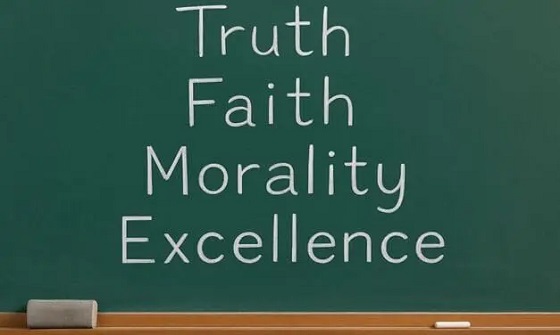
 Education1 day ago
Education1 day agoWhy more parents are turning to Christian schools
-
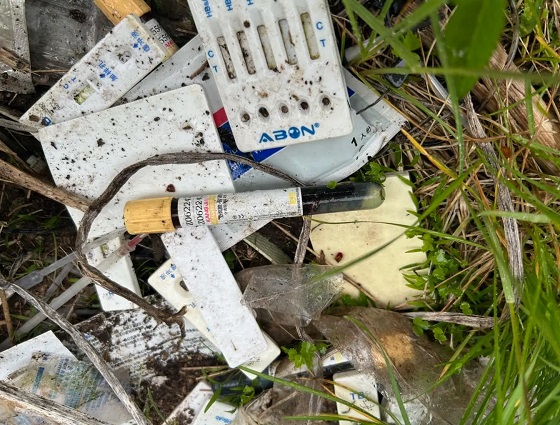
 Immigration2 days ago
Immigration2 days agoUnregulated medical procedures? Prince Edward Islanders Want Answers After Finding Biomedical Waste From PRC-Linked Monasteries
-

 Addictions2 days ago
Addictions2 days agoAfter eight years, Canada still lacks long-term data on safer supply
-

 Business2 days ago
Business2 days agoDemocracy Watchdog Says PM Carney’s “Ethics Screen” Actually “Hides His Participation” In Conflicted Investments
-

 Alberta1 day ago
Alberta1 day agoOPEC+ is playing a dangerous game with oil
-
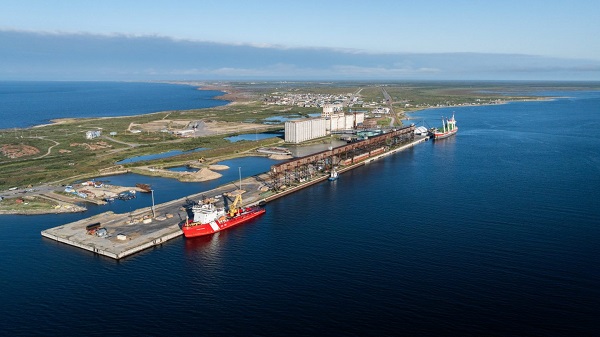
 Alberta1 day ago
Alberta1 day agoUpgrades at Port of Churchill spark ambitions for nation-building Arctic exports
-
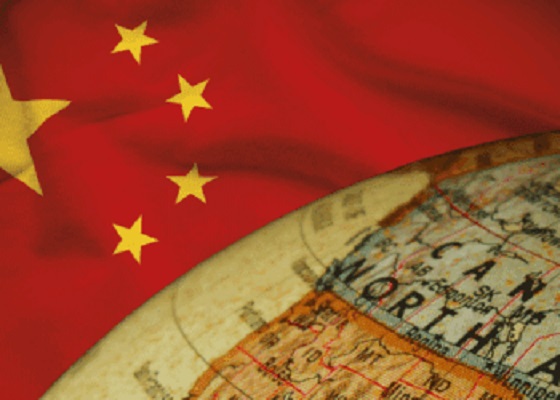
 Business1 day ago
Business1 day agoIs dirty Chinese money undermining Canada’s Arctic?
-

 National2 days ago
National2 days agoLiberals push to lower voting age to 16 in federal elections






